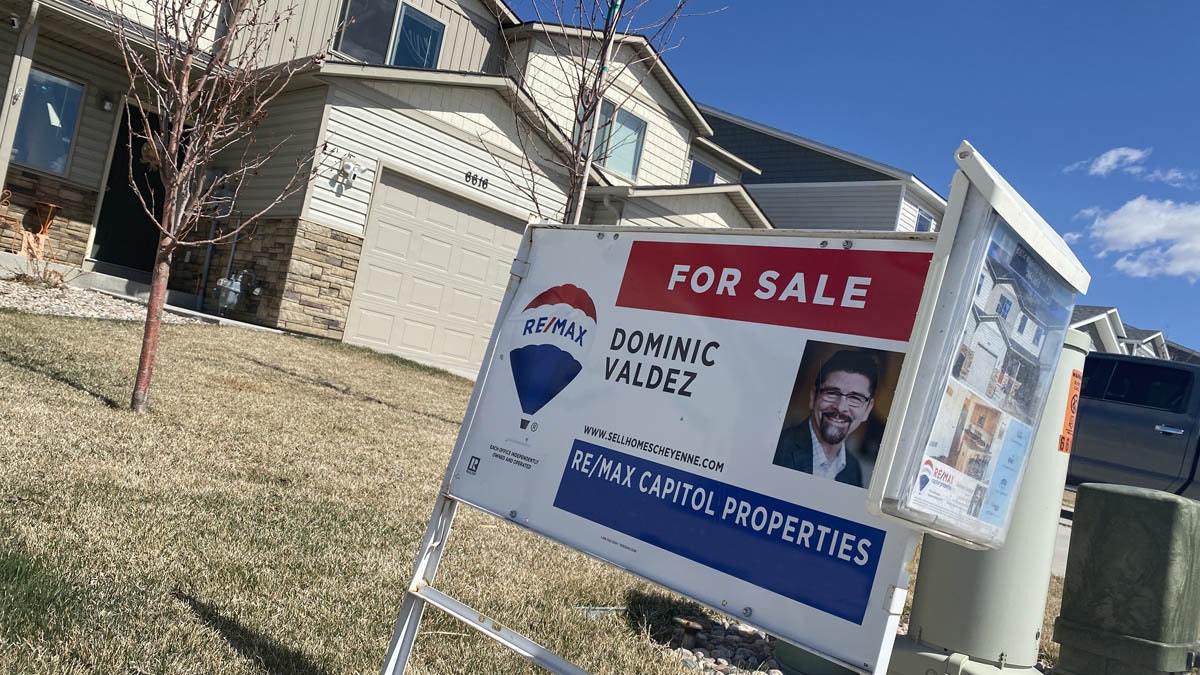American housing markets are rife with uncertainty amid the COVID-19 pandemic, but as national listings see downward trend, Wyoming could flip to buyer’s market, according to economists in the state.
“We won’t know what the coronavirus will do to the housing market until we see all the data, but there is less data coming in right now because of the stay-at-home orders,” said Linda Thunstrom, a University of Wyoming economist. “If this drags on, and we have second waves, then all sectors, including housing, will be affected.”
According to a recent analysis conducted by www.realtor.com, the nation’s inventory of housing for sale declined about 16% compared to last March, but houses sold quicker this March and the median listing price was up about 4% compared to last year.
The more concerning number, Thunstrom said, is the nation’s skyrocketing unemployment claims. Without jobs, people are less likely to dive into a new home and more likely to fall behind on mortgage payments.
The pandemic is leading to a real risk of the housing market being flooded with cheaper houses if the U.S. experiences a spike in foreclosures, which could further complicate the nation’s mounting financial crisis and reduce property values across the board, she explained.
“We need to see a real effort from banks and governments helping low-income earners pay their mortgages,” Thunstrom said.
As an economist and a legislator, Sen. Cale Case, R-Lander, said the housing market influences numerous aspects of Wyoming’s economy — from construction jobs to revenue for local schools and governments.
“It’s a giant industry and a very important sector of our economy,” Case said. “It’s bound to be depressed by the impact of this virus.”
Not only are people being encouraged to stay home, decreasing home viewings and consequent sales, but people might be hesitant to meet with realtors and view listed homes currently being inhabited. As sales decline, property values decline.
“It’s a documented effect that if the value of your house declines, you feel poorer,” Case explained. “If you feel poorer, you spend less.”
Most of Wyoming’s property taxes, which are based on property values, go to school districts, Case said. If property values decline, property tax revenue would follow suit, and school districts would be more reliant on state funding, he explained.
“The virus has compounded Wyoming’s economical problems,” Case said.
Rob Godby, the director for UW’s Energy Economics and Public Policies Center, said the pandemic’s full impact on the housing market might not be known for at least a year.
“We’re still seeing new listings on www.zillow.com in places like Cheyenne and Laramie, so I don’t think COVID-19 has fully hit home yet,” Godby said. “But, looking at the national numbers, it’s hard to say with certainty those declines are caused by the pandemic, because we’re still only a couple weeks into this thing.”
Wyoming was a seller’s market going into 2020, Godby said, but the longer the outbreak lasts, interrupting the economy, the more likely buyers will see prices and supply flip to their favor.
“Part of the problem is there’s very little data about how local markets are doing,” he said.
At a time in American history when data influences nearly every choice people make, the lack of data could cause potential home buyers to lose confidence and put off buying a home until things begin to feel normal again.
Case, Godby and Thunstrom agreed the U.S. is headed into a recession that could eclipse the 2008 collapse, but with conditions changing day to day, determining how long the recession will last is challenging.
“I think (the pandemic) will have major impacts on the housing market for the next four months,” Case said. “But, I don’t think it will be better until next year.”
Thunstrom speculated, “I’m not sure there will be any lasting effects, or at least, I’m hoping not.”
And Godby said, “We’re still at that stage of people questioning if this is serious. It is, but people are still unsure.”
A glut of foreclosures on a national scale led to the Great Recession of 2008, so economists are keeping a close eye on the housing market. But with low interest rates and the potential of people returning to work once the worst has passed, there is a sliver of hope this recession will not hit the housing sector as hard as the last one, Godby added.
“It’s hard to imagine lots of foreclosures,” he said. “The last thing a bank wants to do is foreclose on a house, because it’s almost a certain loss by incurring costs of taking over the home, marketing it and selling it.”





